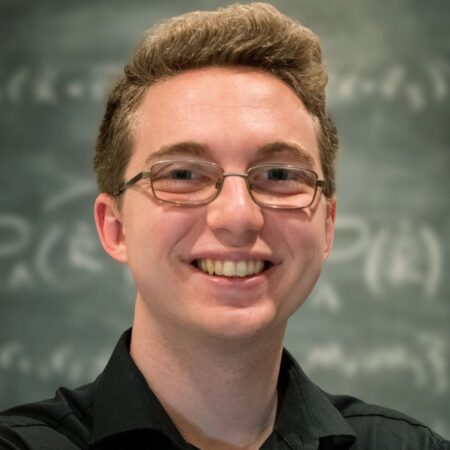James Sunseri

James Sunseri studies the formation of our universe, on scales ranging from stars to galaxies, using numerical simulations in tandem with higher-order statistics and morphological analysis algorithms.
Sunseri will start a doctoral program in astrophysical sciences at Princeton University in fall 2023. He graduated from the University of California, Berkeley, in 2022 with a bachelor’s in physics and astronomy with support from Northern California Scholarship Foundations and several other scholarships.
During his time at Berkeley, Sunseri led two publications and co-authored four others in both observational and theoretical astrophysics. Some of his most notable work focuses on how baryonic matter impacts the formation of large-scale structure in cosmological simulations. He completed this work using a multiscale morphological analysis algorithm inspired by branches of science as far afield as medical imaging and computational geometry.
Alongside his research on cosmological morphology, Sunseri also built a novel software package for measuring higher-order statistics on general gridded datasets with extreme efficiency. This advancement brings a previously inaccessible statistical tool to the field of astrophysics. With his novel code, he is measuring correlations between triplets and quadruplets to study the nature of turbulence and magnetic fields in space and their impact on the formation of stars.
As a first-generation college student, Sunseri feels a moral obligation to share his hard-earned knowledge with others. Sunseri was awarded the Outstanding (Under) Graduate Student Instructor Award for teaching two courses at Berkeley. He also mentors students in research, designs lessons for a local science museum and helps run summer camps for children navigating a parent’s cancer.
Graduate Studies
Undergraduate Studies
Related News
